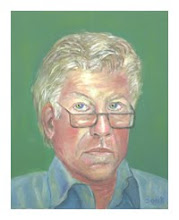Many of my students have difficulty with the concept of Network Neutrality when it is introduced in one of my classes or heard on the daily news. If you hear it on the news please be aware that it is a very important topic and should not be ignored. The tendency is to answer the question about what it is with a one or two sentence answer which is simply not possible and results in a poor or 0 grade or not understanding the concept. The next attempt is at copying the definition straight out of Wikipedia or another on line resource which is not only plagiarism but is only a copy of one or two sentences which still leaves the answer incorrect and the understanding at best incomplete.
Complicating matters further Network Neutrality (NN) continues to change and evolve. In today’s news, for example, National Public Radio (NPR) announced a story on NN with a slant on wireless broadband, titled “Wireless Firms Count on the Future of the Internet” which can be found at http://www.npr.org/2010/11/17/131378404/big-business-exerts-more-control-on-wireless-industry.
There has been a lot of interest, of late, on how the Internet is evolving from wired to wireless and the use of portable devices to effect this change. There is also the misconception, out there, that wireless access, vis a vis 3G, 4G, or Wi-Fi is of limitless bandwidth when in fact it is not. It is certainly of less bandwidth than the state of the art wired technique, fiber optics, which is presently limited to about one terra bit per second (Tbps) or one trillion bits of data per second. Practical bandwidths for fiber optics, especially for residential access are much lower than that and are more around 45 Mbps equivalent to the optical transmission hierarchy rate of optical carrier 1 (OC-1.)
So it is likely, that for a long time the Internet will be a wired and wireless hybrid with wireless methods feeding into wired backbones. In order to ensure NN all of the players in this transmission will need to meet the rules of NN and an enforceable methodology will need to be put in place.
Add to this the current evolution of TV from cable or satellite to the Internet with such services as Netflix streaming, Roku, Hulu Plus, and others and you get an idea of how complex and difficult this topic can be.
In order to understand NN you need to know who the players are. The primary players today will not necessarily be the primary players of tomorrow. For example, wireless broadband will become an ever increasing part if not all of the last mile access methods which now include DSL, Cable TV, Ku band Satellite, and Wimax. In the Tampa area, Wimax will be offered primarily by Clearwire and resold by T-mobile and others.
Also, in today’s news at http://www.wired.com/epicenter/2010/11/net-neutrality-groups-push-fcc/comment-page-1/ an interview with the FCC chairman explains how he will have a more difficult time keeping the administrations campaign promise of a fair and open Internet due to the GOP taking the position that nothing needs to be done and that less government is better. This of course helps the large corporations that are Internet Service Providers (ISP.) It is up to each and every one of you to be aware of this issue and help keep the Internet open and fair for all players.
Consider this information about an incoming republican who seeks to curb the FCC’s powers “The FCC’s regulatory compass must be broken as they continue in their unrelenting pursuit to impose so-called network neutrality regulations, regardless of whether the agency has the legal authority for such a blind power grab, and whether such regulations will actually undermine the FCC’s ability to achieve the goals of the National Broadband plan,” Upton wrote. “The FCC must stand down from pursuing a course unauthorized and opposed by Congress.”
Since 1989, Upton has received $93,600 from AT&T — his second largest career campaign contributor — $51,500 from Comcast, and $47,550 from Verizon, according to the Center for Responsive Politics. From http://www.wired.com/epicenter/2010/11/net-neutrality-groups-push-fcc/comment-page-1/
Subscribe to:
Post Comments (Atom)

No comments:
Post a Comment